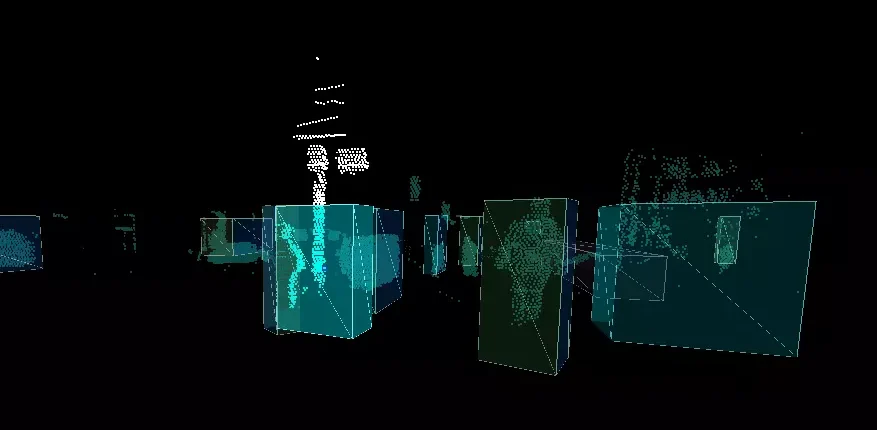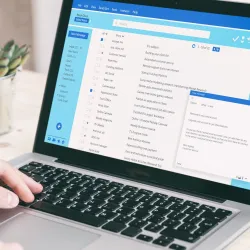Industry Knowledge
How LiDAR Annotation Services Power Computer Vision Models
Discover the transformative impact of LiDAR annotation services in enhancing the precision of computer vision models.
LiDAR (Light Detection and Ranging) technology has become an invaluable, revolutionary component in various industries and applications, particularly for autonomous vehicles. With its ability to capture precise spatial data, LiDAR annotation has become an essential tool for creating detailed 3D maps that enhance perception capabilities in various systems.
Safety and efficiency remain critical concerns in any industry reliant on 3D spatial data. By outsourcing LiDAR annotation services, organizations can unlock the full potential of their computer vision models, ensuring accurate navigation, precise mapping, and more. In this article, we will explore the concept of LiDAR annotation, its applications, as well as how outsourcing LiDAR annotation services can benefit both businesses and their customers.
What is LiDAR Annotation?

LiDAR annotation, similar to image data labeling, is a specialized process that involves labeling objects within a 3D point cloud. A point cloud is created using LiDAR technology, which uses laser beams to measure distances and generate detailed 3D representations of the surroundings. The goal of LiDAR annotation is to provide accurate information about the positions and sizes of objects in the scene.
Imagine a scenario where a self-driving car uses lasers to scan its surroundings, capturing millions of data points. 3D LiDAR annotation is the task of analyzing this data and labeling objects such as cars, pedestrians, and road boundaries, enabling the car's computer to understand and interact with its environment. The labeled data helps train algorithms and improve the vehicle's perception and decision-making abilities, ultimately enhancing safety and efficiency in autonomous systems.
Applications of 3D LiDAR Annotation:
The applications of 3D LiDAR annotation are diverse and include the following:
- Autonomous Driving: By accurately labeling objects within the LiDAR point cloud, autonomous vehicles can detect and classify elements such as cars, pedestrians, and road boundaries. This annotation data is essential for training the vehicle's AI systems to navigate complex environments, make informed decisions, and ensure the safety of passengers and pedestrians alike. The advancement of autonomous technology could be greatly enhanced with the accurate data provided by 3D LiDAR annotation.
- Urban Planning and Infrastructure Development: Precise 3D LiDAR data used for LiDAR annotation aids in creating detailed models of cities and landscapes. It enables urban planners and architects to assess the impact of new developments, analyze terrain, and plan infrastructure projects efficiently. By incorporating accurate 3D information, stakeholders can visualize proposed changes and evaluate their implications on the existing urban fabric. This aids in designing sustainable and well-integrated urban environments.
- Environmental Monitoring: 3D LiDAR annotation plays a significant role in environmental research, natural disaster management, and conservation efforts. By analyzing 3D LiDAR data, researchers can assess vegetation coverage, forest density, and topographical changes in remote areas. This information provides valuable insights into the health of ecosystems, enabling better decision-making for resource management, conservation planning, and mitigating the impact of natural disasters. With the aid of 3D LiDAR annotation, we can preserve and manage our natural resources more effectively.
- Augmented Reality (AR) and Virtual Reality (VR): The incorporation of 3D LiDAR annotation enhances immersive experiences in AR and VR applications. By providing precise 3D information about objects and environments, developers can create more realistic and interactive virtual experiences. This technology enables AR and VR applications to accurately map physical spaces, track movement, and overlay virtual elements seamlessly. With LiDAR annotation, users can engage in immersive gaming experiences, virtual tours, and interactive training simulations, revolutionizing the entertainment and education industries.
How to Choose an Effective LiDAR Annotation Services Outsourcing Partner?
Outsourcing LiDAR annotation services brings several key advantages to businesses seeking the most accurate and efficient data annotation for their machine-learning models. Selecting a partner with proven expertise, robust quality assurance processes, and data security measures to match their advanced AI services will contribute to a successful LiDAR annotation process. Here’s what to look out for in an outsourcing partner:
Expertise and Experience: Select a provider with proven expertise and experience in LiDAR annotation. The outsourcing company or BPO company should deeply understand LiDAR technology and its specific annotation requirements. It should also have all the required resources & a scalable workforce to ensure the sustained success of your ML model.
Skilled Annotators: Ensure the outsourcing partner has a team of skilled annotators trained in LiDAR data annotation techniques. Proficient annotators will ensure accurate labeling and annotation of objects in 3D point clouds while meeting the project requirements and timeline.
Quality Assurance Processes: Choose a partner with robust quality assurance processes regarding their LiDAR annotation processes. They should be able to conduct thorough quality checks to ensure accurate and consistent annotations and adhere to predefined guidelines.
Data Security: The outsourcing partner should have stringent measures to protect your LiDAR data throughout the annotation process, including secure transmission, storage, and compliance with data privacy regulations.
Communication and Collaboration: Effective and transparent communication is essential for successful outsourcing. Ensure that the outsourcing partner maintains open lines of communication, provides regular project updates, and collaborates seamlessly with your team.
Outsource LiDAR Annotation Services with TaskUs

Dubbed by the Everest Group as the World’s Fastest Growing Business Process (Outsourcing) Service Provider in 2022 and with glowing reviews in Gartner Peer Insights, TaskUs is a proven outsourcing partner, offering comprehensive LiDAR annotation services tailored to your business needs. Our global network of skilled annotators and advanced annotation tools ensures accurate and high-quality annotations for 3D LiDAR data. We specialize in handling diverse industries and projects of any scale, making Us an ideal choice for outsourcing LiDAR data annotation. We also implement stringent measures to protect client data throughout the annotation process.
Our accurate 3D LiDAR annotation played a vital role in enhancing the perception and decision-making capabilities of our partner client’s autonomous vehicles. Amid an exponential scaling operation, this globally leading autonomous vehicle company partnered with Us to enhance their AI training through high-precision data.
With a skilled team of 1,800 full-time data annotators, we enabled our partner client to reach a 98% accuracy score through a custom-built quality framework.

Businesses can ensure accurate and efficient LiDAR annotation services by partnering with a reliable outsourcing provider like TaskUs to power computer vision systems.
References

We exist to empower people to deliver Ridiculously Good innovation to the world’s best companies.
Services







